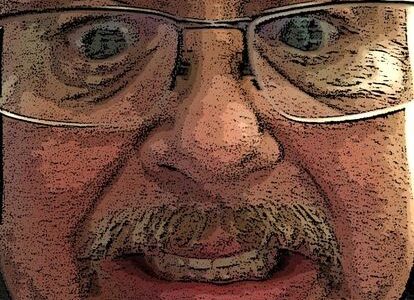
I’ve often referred to myself as being a cave dweller, having spent the majority of my life in recording studios without windows to the outdoors. But the occasional glimpse of sunlight during the drive to the studio, (or sometimes the drive home!) does keep me aware that a world exists out there not covered by fabric and filled with 703 insulation. Don’t get me wrong; we are a traveling breed, moving from cave to cave in search of better environments and better tools. Finding the location of a new cave, or bigger cave, or one with better rocks, was usually done by communicating with the other cave men that you met going in or out of caves. Thinking about the future of the recording studio, and the recording process, got me wondering: What the migrating cave dwellers will do?
It seems that hard disk recording and DAWs are definitely the direction the industry is taking. Although large analog tracking consoles and great acoustic environments will be necessary for the foreseeable future, the majority of the recording process is much more efficient and economical using the new technologies.
A project I recently worked on involved several musicians working at home doing overdubs, trying new ideas, and perfecting the performances that they wanted to achieve. The results were very good. The musicians were extremely happy with the chance to fully develop their ideas, without interference, before presenting them to me as a Producer. But in looking back at the process I realize I was creating even more isolation than existed before. If you believe, like I do, that most music production is the collaboration of all the talents involved which leads to a finished piece which is larger than the sum of its pieces, then what will be the cost to the project by working this way?
A friend of mine who owns a large, successful recording studio business, recently said he wasn’t going to buy any of the “home” type recording systems or build studios around that type of system, because it changed so frequently and was very customized to the way that the user worked. I believe he’s right. I do think that studios need to have the means to interface with the systems, but trying to own and offer every system available simply isn’t possible. Therefore it seems the “personal studio” approach to recording, will be further supported, although unintentionally, by the studio industry.
The thought that comes to mind is: What is the effect that this type of recording process will have on the social environment of the studio, or of making a record?
My career has always grown and developed because of the “circle” of friends and peers that I’ve met through the studio. It’s only natural to want to work with and be around people who’s company you enjoy. I know the world has become a much smaller place with the invention of such things as the Internet, but the relationships formed by working in that context are quite different than those experienced on a personal level. It’s quite possible to now make records where no one is in the same physical location. This type of record making feels a bit like “assembly line” work to me, each guy does his part and hands it to the next guy.
I don’t know the answers to the questions I’ve been asking this month, because my experiences using the new technologies have so far been positive and did not seem to suffer from a lack of interaction. One reason may be that the musicians I was working with and I already had a relationship and this was just part of that relationship.
Music is the expression of the person’s emotion as well as their thoughts, captured at a personal level but presented to all. I guess my concerns about the social interaction of making music is a selfish one, being present and being part of making a great song is an incredible experience. I would hate to have other people miss out on that joy because of technology.
I lost a friend this week to cancer. His name was Van Stephenson. Van was a great songwriter and artist having hits as an artist and writer in both the pop and country world, with over 400 songs cut by acts ranging from Eric Clapton, Kenny Rodgers, and Laura Branigan in the pop world, to Restless Heart, Reba, and (his band) BlackHawk in country. Van taught me so much about creating music and making records. He also introduced me to most of the record industry I work with today, and I’ll miss him. It’s these kind of relationships that I don’t want to see missed by the possible isolation in the “new” recording model.
OK, I guess it’s time for me to grab my club and head back to my cave.
Michael D. Clute – Producer/Engineer

